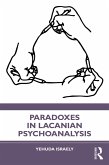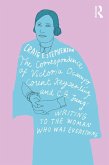Dieser Download kann aus rechtlichen Gründen nur mit Rechnungsadresse in A, B, BG, CY, CZ, D, DK, EW, E, FIN, F, GR, HR, H, IRL, I, LT, L, LR, M, NL, PL, P, R, S, SLO, SK ausgeliefert werden.
- Justin A. Frank, MD, author of Obama on the Couch, and the forthcoming Trump on the Couch
'Barry Richards provides another avenue to important questions of social psychology: How can we understand the internal psychic conditions of coping with the external world? How can we investigate what "holds societies together" in a deeper psychological sense - in a sense that doesn't only analyse problematic forms of individual adaptation or damaging kinds of submission to social reality? To answer these questions the author concentrates mainly on what he formulates as a need to establish a containing relationship to the external world. Anyone involved in analysing the complex relationship between internal and external realities and between sociology and psychoanalysis will find inspiring new ideas in this interesting book.'
- Vera King, Sigmund-Freud-Institut and Goethe University, Frankfurt, Germany
'Popular culture and its political expression "populism" is a giant materialising out of the mists to haunt the elite and the intellectuals alike. It is best we get to know it. This book gives us a sketch map of the territory on which these new manifestations occur. It is a surprisingly hopeful read as it surveys the important dialectic of our own selves embedded within our collective world.'
- R. D. Hinshelwood, fellow of the British Psychoanalytical Society and professor in the Centre of Psychoanalytic Studies, University of Essex
"Drawing on Freud's pleasure principle, he argues that popular culture (football, popular music, consumer culture) offers a pleasurable libidinal and aggressive release that cannot escape social norms and values that must be adhered to in order to co-exist in society. As such, popular culture's derivative is the id and society's norms the superego, and, it is the tension between the two that makes popular culture containing.Although academic in tone and focus, the book indirectly highlights the significance of politics and popular culture in the therapy room, and how it can influence the client's feeling of containment or fragmentation."
-Marta Moe, Psychodynamic Practice Journal









